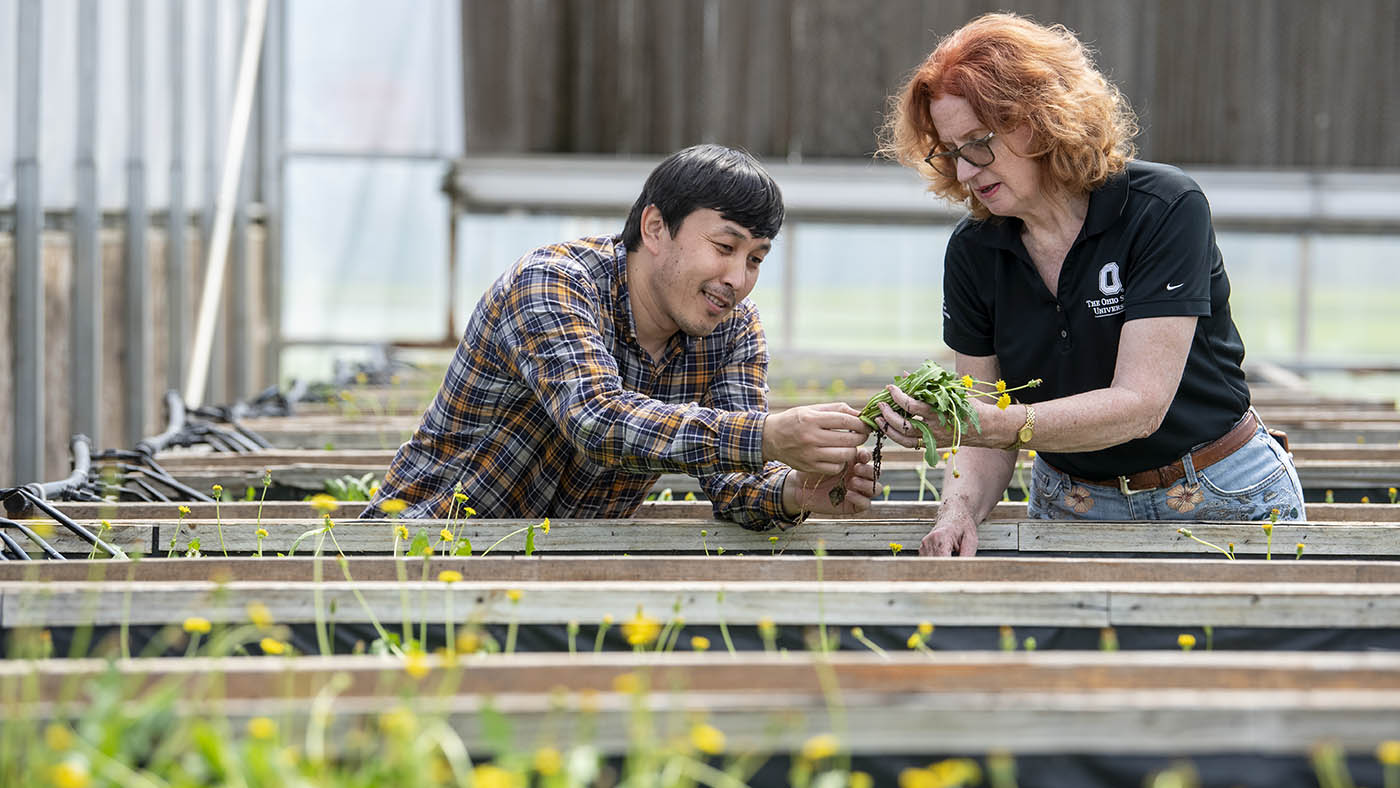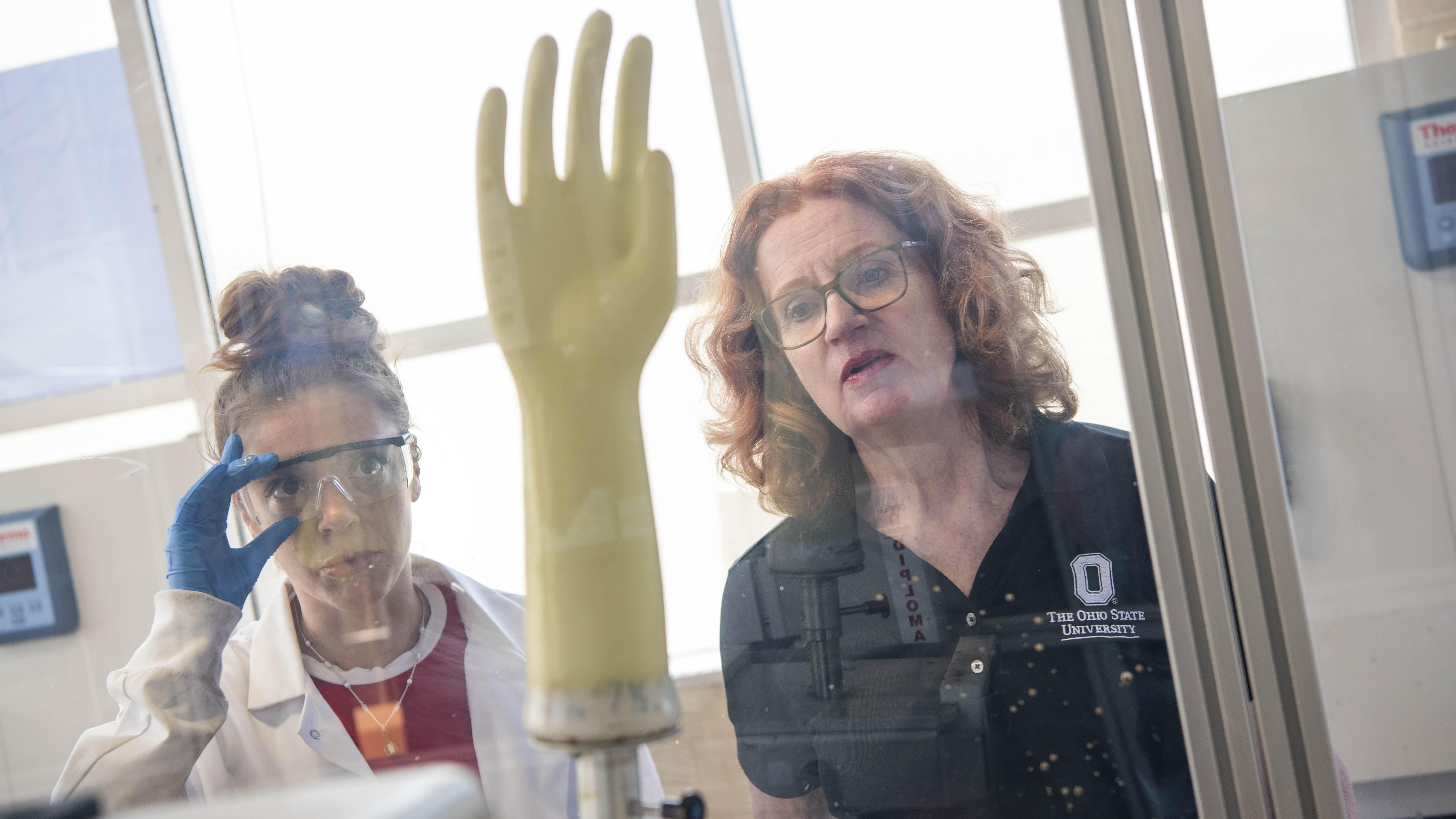This professor is pioneering sustainable rubber
Katrina Cornish is growing a precious natural resource in our own backyard.

Katrina Cornish has a clear vision of what could be.
In the Ohio State professor’s vision, America capitalizes on her 35 years of work and produces its own rubber, the crucial resource we use to make the tires we travel on, the gloves our nurses and doctors wear, the sports equipment our kids use and about 50,000 other products on which we rely.
The benefits of domestic rubber production?
For starters, the independence would be significant. The United States is 100 percent dependent on other countries, importing millions of tons of rubber and rubber goods each year.
Plus, the millions of American jobs it would create? The massive amount of carbon emissions the crops would soak up? Vital benefits for sure.
“The four most important natural resources we have are air, water, petroleum and natural rubber,” said Cornish, an internationally recognized expert on alternative natural rubber production. “I do have a crusading spirit, and I want to get this established in this country because there’s no aspect of our economy that doesn’t depend on it.”
If the U.S. maintains its status quo with importation, a rubber apocalypse will occur, Cornish forecasts. And truth be told, it’s already started.
Ninety percent of our natural rubber is imported from southeast Asia from Hevea trees that are tapped for latex. In 2019, the world produced 14 million tons of rubber mostly from this area of the world. However, between diseases killing trees, climate change decreasing land availability, extreme weather events and COVID wreaking havoc on supply lines and driving up cost eight times higher, there’s already been a significant drop in what we can import.
Many of the countries producing rubber also have close ties to China, which could cut off America whenever it wants.
“My big concern is we’ll get cut off by politics or disease,” Cornish said. “And then we’re going to have an economic depression like we haven’t seen since the 1930s. It’s a bit like the elephant in the room. How can you pretend it’s not there?”

Developing solutions
With a joint appointment at Ohio State in the Department of Horticulture and Crop Science and the Department of Food, Agriculture and Biological Engineering, Cornish has created multiple ways of growing latex-producing crops, extracting the latex and producing rubber and even products.
“A real strength of Ohio State is they encourage joint appointments,” Cornish said. “If I just sat in a silo, if, say, I just grew some crop, well, what then?
“I take a soup-to-nuts approach; everything from gene editing at one end to product development. And if I don’t know how to do something, I bring in collaborators and find out how to do it. To get this done you have to do it collaboratively.”
Her approach has led to refining two crops that produce latex: the TK Dandelion (or Buckeye Gold) — which she grows at Ohio State’s Wooster campus — and guayule, a shrub that grows in the desert. Not only can these be grown in fields and harvested annually, but she’s also developed a hydroponic approach to growing the TK Dandelion, which can be harvested every two months.
That brings us to another strength of Ohio State that Cornish has taken advantage of: encouraging partnerships with industry and startups. Cornish’s scientific expertise has led her to co-found a number of startups, including her own guayule latex company, EnergyEne.
Meanwhile, the American Sustainable Rubber Co. , founded on her scientific knowledge, is commercializing the production of TK Dandelions in hydroponic greenhouses.
Cornish’s innovation, company President Tim Madden said, could lead to the development of a sustainable, industrial-scale, domestic natural rubber supply chain in a time when the United States needs it most.
“She is widely recognized as a world leader in the natural rubber industry. There is almost no one who works professionally in the natural rubber industry worldwide who does not know her personally, or at the very least her research,” Madden said.
“She knows exactly how to scale her research to industrial levels, she just needs as much financial and government support as possible to continue her very important work.”
Using guayule, Cornish has produced a high-end latex medical glove that protects against bloodborne pathogens and radiation but doesn’t cause allergic reactions and meets FDA standards. Prior to her Radiation Attenuation glove, many medical professionals had to wear two gloves.
It’s an example of the holistic system she’s developed. And her knowledge could help the U.S. to develop its own rubber production. Of course, it would take a massive investment of time and money. However, once the first farm and processing plant are up and running, Cornish believes it would kick-start others.
“There’s plenty of farmers wanting to farm it, and plenty of manufacturers will buy it. But getting that process and infrastructure in place is really difficult,” she said. “Unfortunately, much of the U.S. industry and government is reactive instead of proactive. They wait for disaster and disaster is, quite honestly, inevitable. We’ve got to get ahead of it.”